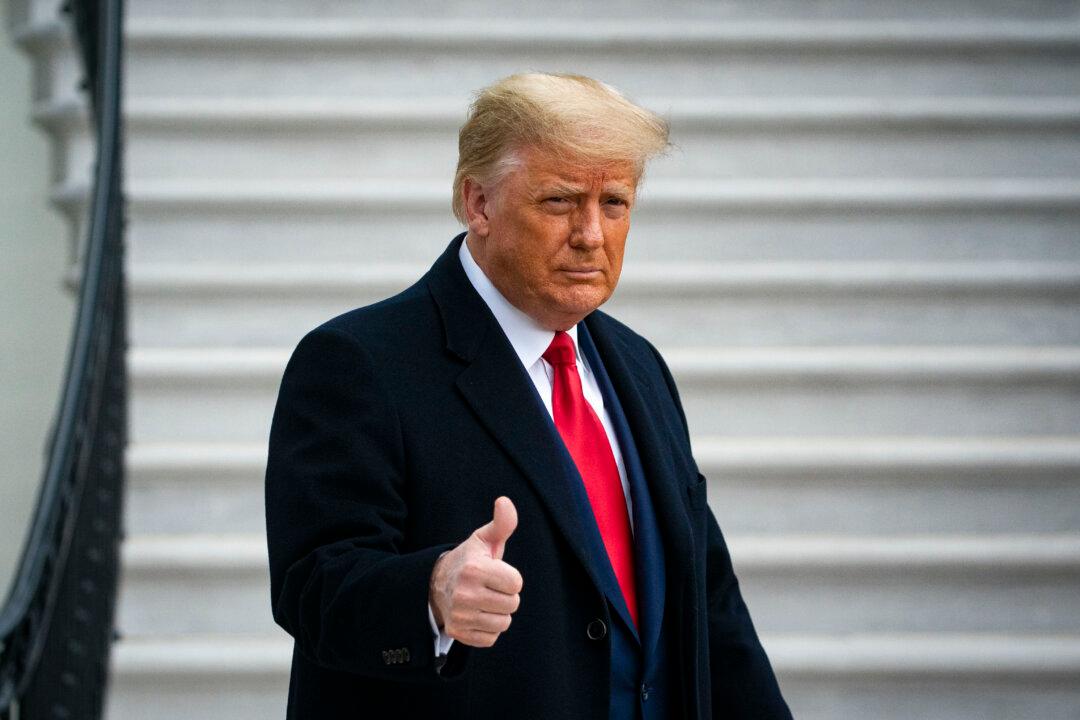President Donald Trump on Monday phoned into a conservative youth conference held in West Palm Beach, Florida, where he urged the Justice Department and “other people” to step up in order to get to the bottom of election integrity concerns.
“We are fighting really for the country because, this election, we won this election in a landslide,” Trump told the crowd of students attending Turning Point USA’s four-day student conference, where many prominent conservative speakers took the stage.




